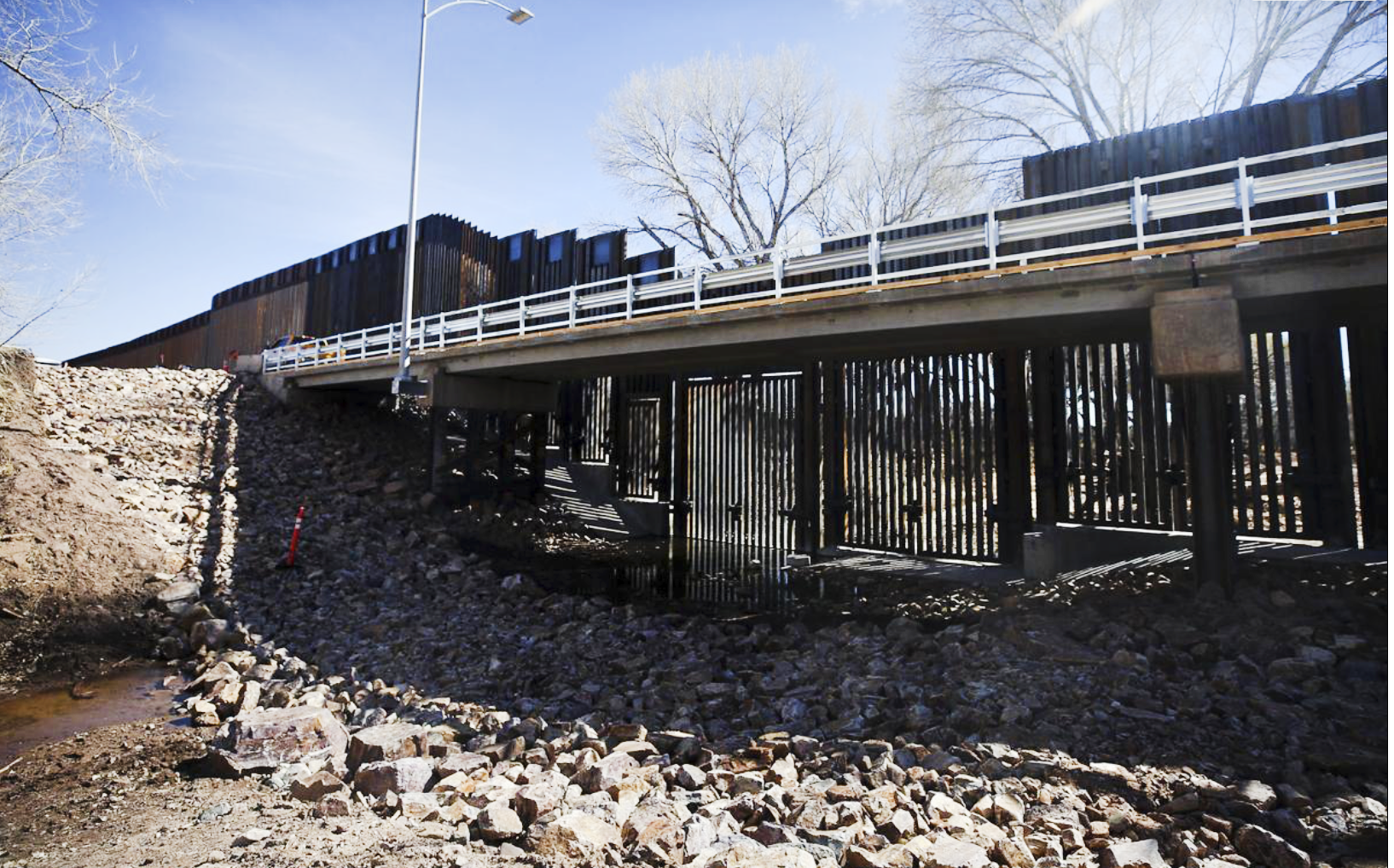The U.S./Mexico border wall along the San Pedro River in the San Pedro Riparian National Conservation Area in Hereford, Ariz., on February 9, 2021./Mamta Popat / Arizona Daily Star
By Mandy Loader for Arizona Daily Star
In the weeks since President Biden paused border wall construction, a broad coalition of advocacy groups in Southern Arizona and across the nation wasted no time letting him know exactly where they want him to tear it down.
A coalition of nearly 70 environmental groups, civil-rights organizations and tribal entities sent a report last week to lawmakers and Biden administration officials asking for 59 miles of 30-foot-tall border wall in Arizona to be removed, along with sections of wall elsewhere along the U.S.-Mexico border.
Their request came as administration officials are in the middle of a 60-day evaluation of wall projects. Advocates with the No Border Wall coalition hope the report, which focuses on key wildlife corridors, such as the San Pedro River and the Coronado National Forest, will spur officials to adopt a more comprehensive plan for the wall that would include immediately canceling contracts.
“It’s been so heartbreaking to watch the wall rip across Arizona the last year and a half,” said Laiken Jordahl, borderlands campaigner for the Tucson-based Center for Biological Diversity.
“It’s so difficult to pick out specific locations where we feel the wall needs to come down, because the right thing to do would be to tear it down everywhere,” he said.
But at the same time, “we have to be practical and strategic,” he added.
“This article highlights some of the many reasons there was such opposition to a hastily built and recklessly considered vanity project from the prior administration. There are much more effective and less invasive and costly ways to enforce and monitor border security than this wall. We understand the need to balance security concerns with human rights and conservation efforts, and hope that the Biden administration can do so while eliminating the portions of this wall that adversely impact the latter without severely impacting the former.”
Darius Amiri, Rose Law Group Immigration Law Dept. Chair








